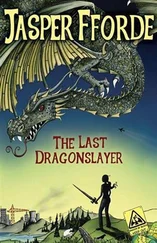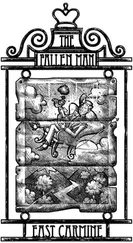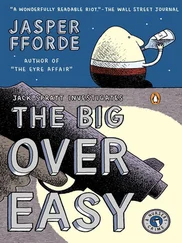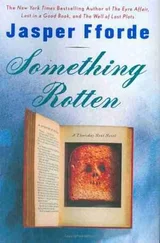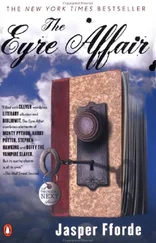She laughed.
‘Geoffrey said it suited me as I was a horse’s arse. I had to marry him, of course, and we had seventeen years of unbridled joy. He was my Romeo and my Macbeth, my Rochester and my Desmond. But we still donned the panto horse outfit and performed the equestrian gavotte at parties, just for kicks and giggles.’
She paused, and the smile dropped from her face.
‘At Springrise five seasons ago I thought he was just having a foggy morning, but his light through yonder window never broke. He did a post-mortem trick, too: Romeo, the balcony scene. Over and over again. I thought he was still in there, too. Not unusual to believe so, I’m told. I didn’t keep him for five years, though – he ate my sister’s Norfolk terrier the following Tuesday and that was it. I called the HiberTech hotline and they took him away.’
Better I’d be Dead in Sleep/than asleep and dead
wandering the Winter deep/Winter Cutlets as my bread.
‘I’m sorry for your loss.’
‘He was redeployed as a road sweeper and I saw him once, I think, in Lee-on-the-Solent. Well, I thought it was him. HiberTech have a Redeployment Centre there, so it could have been one of many, I suppose. He was parted out the next Winter. His legs are on a gardener in Stourbridge right now and his eyes are currently looking across the Sound of Mull, which he would have liked. I don’t know about the rest of him…’
She lapsed into silence. Best not to dwell, no matter how hard that can be.
I turned to the train window and stared out at a landscape that, while constantly changing in detail, remained much the same in aspect: snow and ice, bleak and empty, cold and unwelcoming. The Winter. There was a very good reason most of us slept through it.
Mrs Tiffen stopped playing and dropped into the rigid state peculiar to nightwalkers known as Rigor torpis . It was a welcome respite from the playing, and although she could play ‘Help Yourself’ quite well, it was motor memory only – there was nothing in or on her mind at all.
‘That’s a relief,’ said the actor, and for the remainder of the journey she imparted to me some tips about the Winter: primarily to resist borrowing money from bondsmen, [27] Cash is fairly worthless in the Winter, so bondsmen advance loans and negotiate debts and credits, all for a fee.
shun all contact with anyone of ‘low, questionable or financially-negotiable morals’ and to avoid the drowsies.
‘One moment you’re transfixed by their large eyes and honeyed words and wondering if there is anywhere you’d rather be,’ she told me, ‘and the next you’re paying off the Debt from the hock-house wondering how you could have been so stupid.’
‘I’ll be careful.’
The train slowed as we approached Merthyr, the disused pit-workings silhouetted against the afternoon sky, the streetlights already on. This was as far as we went on the local train; we’d need a transregional fitted with a snowplough to take us ‘over the hump’ to Sector Twelve.
The actor stood up to retrieve her bags from the rack while I smeared a finger-full of peanut butter on the roof of Mrs Tiffen’s mouth to keep her occupied. The actor opened the door to the compartment and stepped down onto the recently gritted platform.
‘Well, good luck with your first season,’ she said. ‘Keep your wits about you, and be prepared in case Hydra comes knocking. Whenever I took on a part, I always made sure I knew the lines of the next one up the ladder. I bagged my first Hamlet that way.’
The Hydra system wasn’t just for actors, it was for all of us. She gave me a Winter hug.
‘May the Spring embrace you.’
‘And embrace you, too.’
‘Who was that?’ asked Logan, who joined Mrs Tiffen and me from where he’d been travelling in first class.
‘I didn’t get her name,’ I said, ‘a thespian readying herself for a Winter tour.’
‘A noble servant of the Winter,’ said Logan, ‘like us. Now listen: we’ve got just over an hour before our connection and I have to go and see someone. I’ll meet you in Mrs Nesbit’s in about fifty minutes. Order me a bacon sandwich and a cup of tea to go.’
‘Yes, sir.’
‘Oh, and Worthing?’
‘Yes?’
‘Don’t lose the Vacant.’
And he was gone, walking briskly towards the exit. I stood on the platform for a moment in the gently falling snow, the air heavy with the pleasing odour of coal-smoke. By rights, you shouldn’t smell smoke two weeks after industrial shutdown, but most of the coalfields under Tredegar, Rhondda and in the Taff Valley north of Merthyr were now burning underground, the hills leaking smoke through fissures in the ground, the intense heat transforming trees into twisted relics of charcoal. The boffins had said it was only a matter of time before the gases managed to lock in some global heat, but every year it grew colder, the glaciers advanced some more, the growing season shortened. But for us, at least there was a positive: Wales derived much of its revenue from the CO 2release tariffs, negotiated early on, when six times higher than they are now.
I couldn’t find a guard so walked towards the only train in the station. The engine had not yet arrived, and behind the single coach were two flat-bed railcars being loaded by a freightmaster in a forklift. He had the exhausted demeanour of a long-time Winterer; dark-rimmed eyes and slack, pale skin. Overwintering accelerated ageing by a factor of at least one and a half. When you committed your professional life to a Wintering career, you gave part of your physical life, too.
The wooden crates were marked Ambrosia Creamed Rice, Wagon Wheels, Mini-rolls and Dream Topping. Like much else, sound nutritional sense was suspended during Winter. From a morale point of view, eating comfort food made Winters seem less like cold purgatory, and more like a kid’s party. More relevantly, the cases also had ‘HiberTech Industries – Sector 12 – Winter Urgent’ stencilled on the side. I knew it was the right train, but in time-honoured tradition asked the freightmaster to confirm it anyway.
His name, I learned, was Moody.
‘I’d like us to be off as soon as the engine arrives and is coupled,’ he said, glancing nervously at the sky from where snow was falling in broad, languid spirals, ‘but the stationmaster is a stickler for punctuality, so it’ll leave when it’s scheduled: in fifty-eight minutes’ time. Returning or staying over?’
‘ Definitely returning,’ I replied.
‘Wise move. Sector Twelve’s not for the faint-hearted.’
‘Do I look faint-hearted?’
‘When it comes to Sector Twelve, everyone’s faint-hearted.’
There was no real answer to this, and knowing the dead woman was going to get hungry again pretty soon, I took her with me to the one watering hole still open: Mrs Nesbit’s Traditional Tearooms. At the last count there were eight thousand outlets of the popular eatery across the Northern Fed, with four hundred and six open throughout the Winter. [28] By legal mandate direct from the Ministry of Sleep.
The establishment had a cosy familiarity about it: the logo of the company, here emblazoned bright and proud on the window, was the eponymous and wholly invented character of Mrs Nesbit herself. She had a winning folksy smile, a swirl of grey hair tied up in a bun and was wearing an old-style blouse and red dress beneath a kitchen apron. For reasons of familiarity and convenience – both ruthlessly exploited by NesCorp – it was the default snack bar for almost everyone, irrespective of social class or cultural background.
I walked inside, the bouzouki across my shoulder, the dead woman shambling in front of me, still occupied with trying to lick the peanut butter from the roof of her mouth. Inside the tearooms the air was heavy with the smell of baking, cheap jam and chicory-laced coffee, and predictably, the rooms were not busy. There were only six customers in an establishment big enough for ten times that number.
Читать дальше




